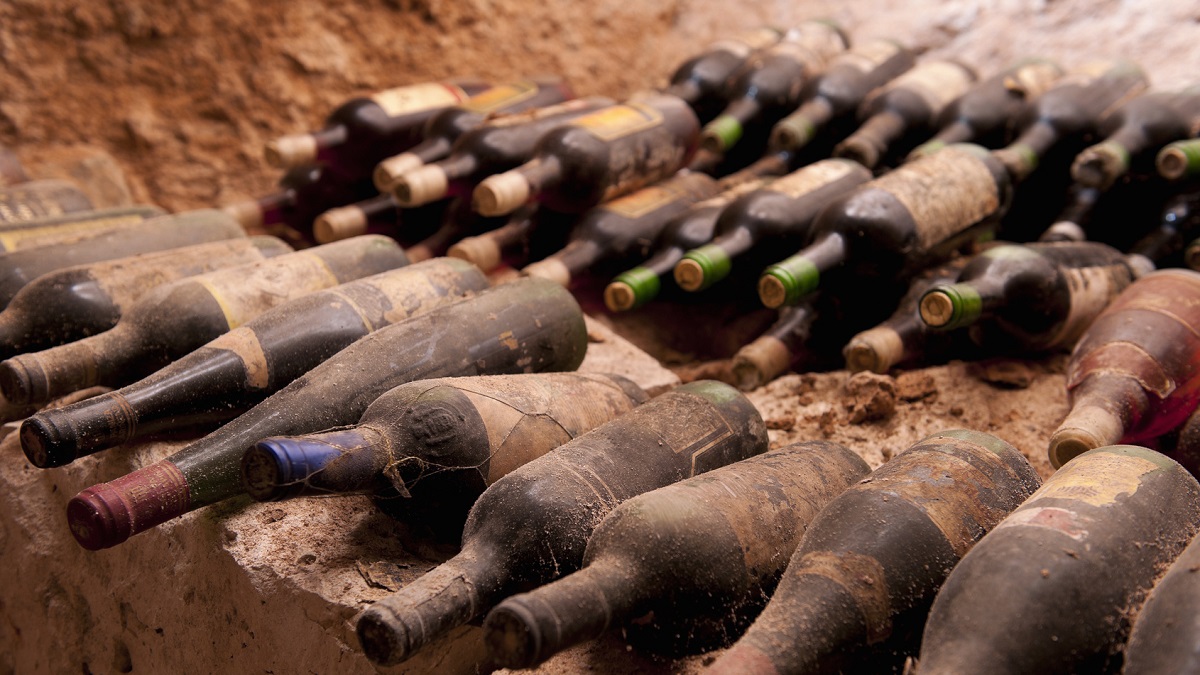Home wine aging is an art that enhances the complexity and depth of aromas. To obtain a well evolved wine, it is crucial to follow certain rules.
Why age your wine at home?

Not all wines need long aging, but some gain in character and complexity with time. Ageing helps :
- Develop more subtle aromas.
- Soften tannins in red wines.
- Improve the balance between acidity and alcohol.
- To enhance the value of certain bottles over the long term.
However, improper storage can alter a wine and render it undrinkable. That's why it's essential to follow good storage practices.
Optimal conditions for storing wine
Successful aging is based on five essential criteria:
1. The ideal temperature
Temperature plays a key role in the evolution of wine. Excessive heat accelerates aging, while too low a temperature slows it down.
- Ideally between 10 and 14°C for all types of wine.
- Avoid sudden variations which can damage the wine's structure.
- Avoid overheated rooms such as the kitchen or living room.
2. Moisture to protect corks
Humidity is an often overlooked factor in wine cellar management. Insufficient humidity dries out the cork and allows oxygen to penetrate the bottle.
- A humidity level between 60 and 75% is recommended.
- Avoid excessively dry air, which can cause premature oxidation.
- Avoid excessive humidity to prevent mold.
3. Total darkness
Light can alter wine by causing premature oxidation.
- Store wine in a dark place or use solid doors on electric cellars.
- Avoid neon bulbs, which emit harmful UV rays.
4. The right position
Bottle orientation influences cork quality.
- Store bottles lying down so that the cork remains in contact with the wine and prevents it from drying out.
- Bottles with screw caps can be safely stored upright.
5. Vibration-free
Vibrations disrupt the wine's chemical structure.
- Do not store bottles near a washing machine or refrigerator.
- Choose a stable location, especially for ageing wines.
What type of wine cellar should I choose?
Depending on the space available, there are several solutions for optimizing home wine aging.
1. The natural cellar
Ideal for large collections, an underground cellar provides optimal wine conditions in a natural way.
- Good insulation ensures a stable temperature.
- Humidity is naturally regulated.
- A gravel floor promotes thermal regulation.
2. The electric wine cellar
For those who don't have a cellar, an ageing cabinet is an excellent alternative.
- It maintains constant temperature and humidity.
- It protects against vibrations and light.
- It's ideal for a modern apartment or house.
3. Space in a closet or basement
If you don't have a cellar or an electric cellar, you can create a small space in a closet.
- Choose a place without direct light.
- Add a thermometer and hygrometer to monitor conditions.
- Make sure there are no strong odors that could impregnate the wine.
Which wines to age?
Not all wines are made to be kept for a long time. Some need to be drunk young, while others gain in quality over time.
1. Red wines for laying down
Tannic red wines are best suited to aging.
- Bordeaux Grand Cru: 10 to 20 years.
- Barolo and Brunello di Montalcino: 10 to 30 years.
- Côte-Rôtie or Châteauneuf-du-Pape: 10 to 15 years.
2. White wines suitable for ageing
Some white wines can evolve favorably over time.
- Great Burgundy appellations (Meursault, Chablis Grand Cru): 10 to 15 years.
- German Riesling: 10 to 20 years.
- Sauternes and sweet wines: 20 years or more.
3. Wines to drink young
Some wines need to be drunk quickly to benefit from their freshness.
- Beaujolais Nouveau: to be drunk within the year.
- Rosé wines: 1 to 2 years maximum.
- Light white wines: 2 to 3 years.
How to manage your wine cellar?
Efficient cellar management helps you avoid mistakes and optimize home wine ageing.
1. Keep an accurate inventory
Keeping track of your bottles means you don't forget them, and can anticipate their consumption.
- Use an application or notebook to record entries and exits.
- Indicate purchase dates and vintages.
- Sort bottles in order of consumption.
2. Respect the order of the bottles
Bottles must be arranged logically.
- Wines to be drunk young come first.
- Ageing wines in the most stable parts of the cellar.
- Bottles lying down and not stacked to avoid breakage.
3. Regularly check wine condition
Regular checks help avoid unpleasant surprises.
- Observe color changes to detect oxidation.
- Check fluid levels for leaks.
- Taste certain wines to see how they evolve.
Conclusion: ageing wine at home
Successful home wine aging depends on optimal wine conditions and good wine cellar management. A stable temperature, controlled humidity and proper storage guarantee the harmonious evolution of bottles.
If you want to create an ideal wine cellar, adapt your space and choose the right wines to age. With the right care, each bottle will be able to express its full potential.
If you enjoyed this article, please read the following article "The advantages of an in-ground wine cellar for collectors", which may also be of interest to you!





